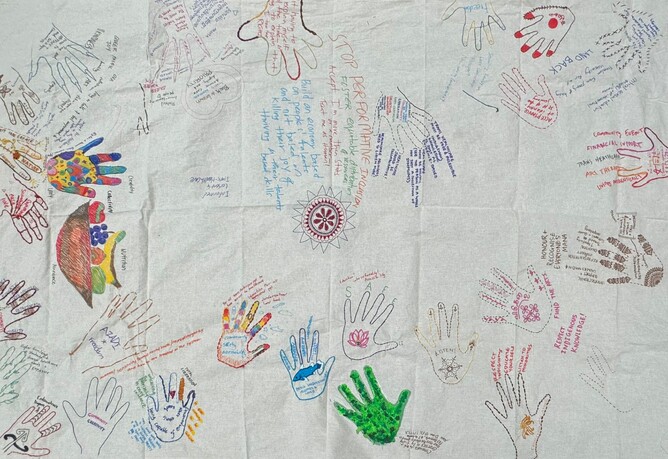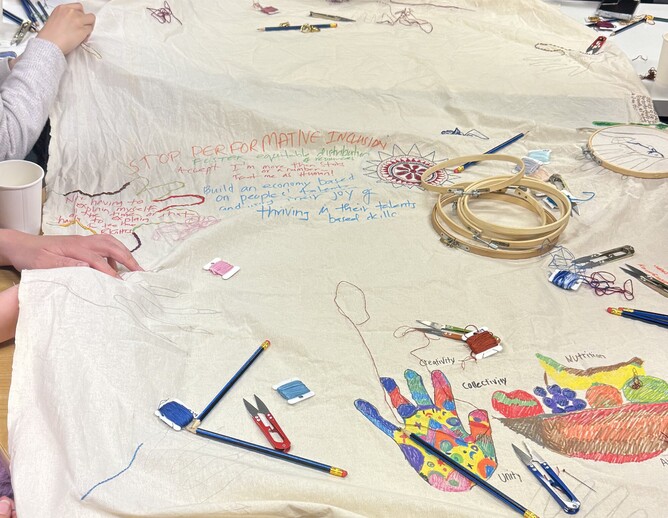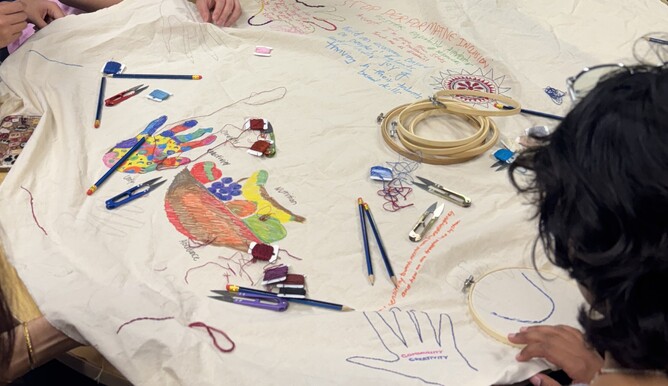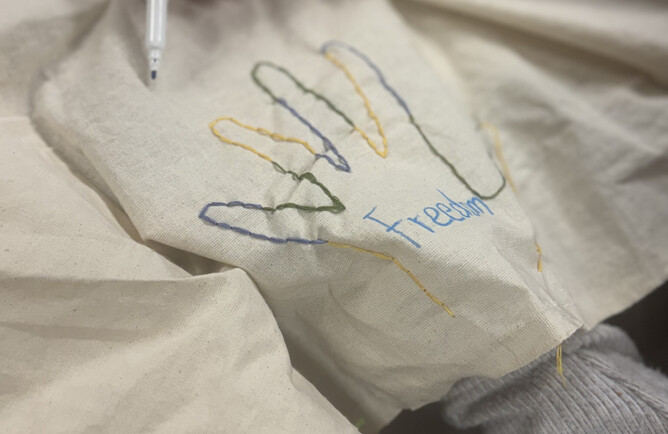This piece emerges from a reflective exchange between Simran Saini, a participant in Threads of Us, and Cayathri Divakalala, one of its facilitators. Together, they/we explore what it means to create, connect, and heal within queer and POC community spaces across Aotearoa.
Threads of Us is a living, breathing community arts practice that interlaces creative expression, cultural identity, and collective healing within queer and people-of-colour (POC) communities across Aotearoa. Co-designed and co-facilitated by Nakshi Kantha artist Sahana Rahman and researcher/community advocate Cayathri Divakalala, with significant guidance and collaboration from our community members. It is not merely an arts project. It is a weaving of stories, gestures, the famous South Asian head wobbles, shared silences, and recommendations for service providers that explore what it means to belong, to resist, to rebuild together, and to thrive. Through its embodied workshops and digital sharings, Threads of Us has become both a site of artmaking and a philosophy in action: an ever-growing embroidery of care, resistance, reflection, and advocacy.
Drawing on the evocative reflections of Simran, the project emerges as a rare example of a space that is both artistically generative and socially transformative. Their writing from the Tāmaki Makaurau workshop offers a profound sense of safety and recognition to those who often move through the world negotiating layers of marginalisation.
The chosen medium of embroidery is not incidental. Each thread becomes a gesture of care, a testimony to the belief that liberation and belonging are not solitary pursuits but shared creations. At its core, Threads of Us recognises that artmaking and healing are interwoven processes. The mindful rhythm of stitching, the shared quiet of collective storytelling, and the sensory experience of working with fabric all contribute to what Simran describes as “embodied presence”, a sense of being both grounded and witnessed in the present moment.
The project’s strength also lies in its reflexivity. This means the ongoing commitment to critical self-examination and inclusive growth. Simran’s reflections highlight the project’s responsiveness: an understanding that representation must always stretch beyond the familiar and dominant, that accessibility is not a static checklist but a living practice. This openness to feedback and evolution speaks to Threads of Us’ integrity and sustainability; it is a space that learns as it grows.
In essence, Threads of Us stands as an evolving archive of what intersectional, decolonial, and community-led art can do. It bridges theory and tenderness, activism and artistry, personal reflection, and collective transformation. Through its workshops, writings, and online presence, it offers a blueprint for how creativity can cultivate belonging, critical thought, and transformation. Its impact ripples far beyond the threads themselves, reminding us that when we create together, we also reimagine what community can be.
Simran and Caya



